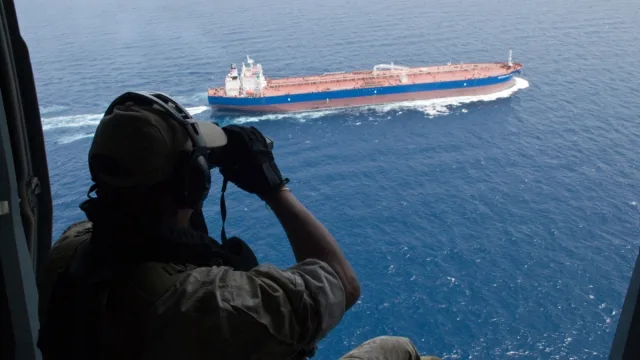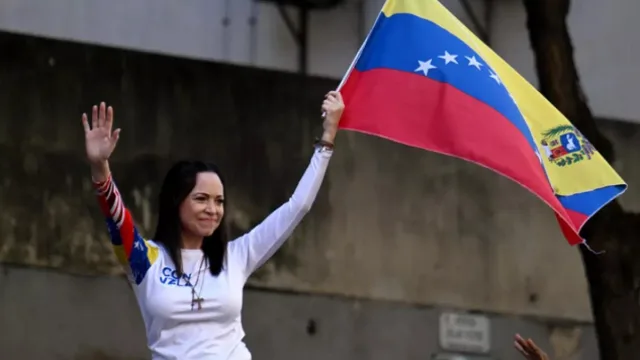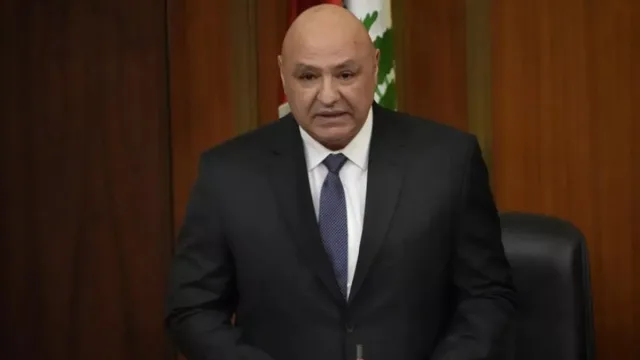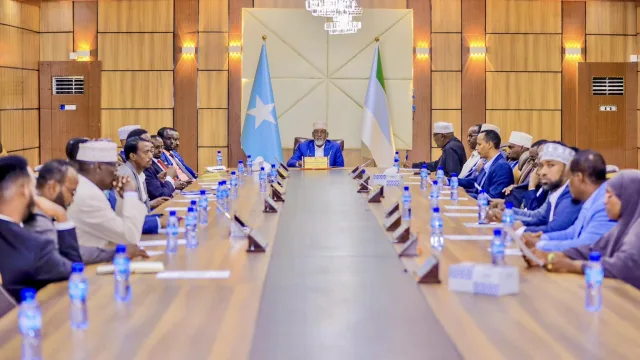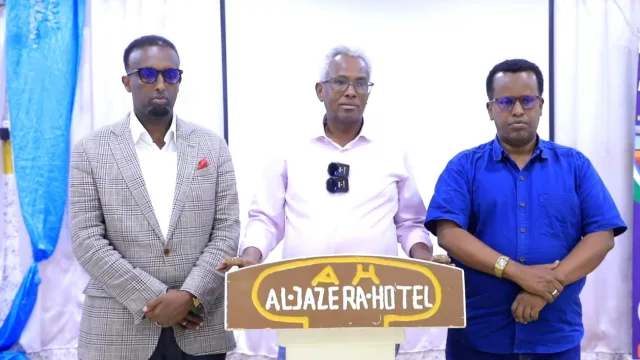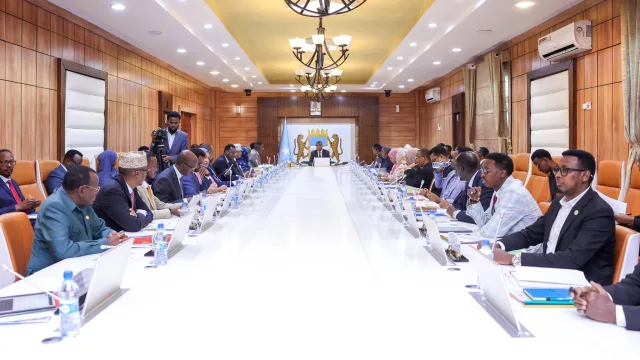Bangui (Central African Republic) (AFP) – Some 1,300 Muslims fearing attack by mainly Christian militias left…

![]()
Bangui (Central African Republic) (AFP) – Some 1,300 Muslims fearing attack by mainly Christian militias left the Central African capital Bangui on Sunday under heavy guard, deepening the religious divide in the strife-torn country.
Piled along with their possessions aboard 18 articulated lorries, the refugees left around midday accompanied by a large contingent of African peacekeepers, headed for the relative safety of the north.
They had been stranded in the PK-12 area on the outskirts of Bangui for five months as transport failed to materialise and amid debate over whether the mass exodus of Muslims from the capital would make peace even more elusive.
The rundown PK-12 ghetto is completely surrounded by a hostile mainly Christian community, and the Muslims had come under frequent attack.
Residents said 22 people had died since December, of whom 18 were victims of violence. Countless others have been wounded by bullets, grenade shrapnel and machetes.
Just after the convoy set off, hundreds of youths could be seen pillaging the ghetto for items abandoned by the Muslims.
Tens of thousands have already fled northwards, almost emptying the south of the country to join those of their own faith, already strongly represented in the north. Others have crossed borders into Chad and Cameroon.
They are escorted by soldiers from France’s Operation Sangaris and troops of the multinational African mission MISCA, who together form a peacekeeping force of more than 7,000 men.
The sectarian violence erupted in the former French colony after mainly Muslim rebels of the Seleka alliance seized power for 10 months in March last year and rogue elements carried out terrible atrocities against civilians.
Mostly Christian communities then formed “anti-balaka” vigilante forces to wreak brutal revenge against Muslims, usually targeting innocent people.
Today, extremists of the Seleka alliance, which was officially dissolved by its leader Michel Djotodia before he stepped down as president in January, actively encourage de facto partition.
– Dire warnings –
Last week, Reconciliation Minister Antoinette Montaigne warned that the exodus would undermine peace efforts.
“I decided to join the debate because nobody has shown concern for the vital stakes of reconciliation,” Montaigne said, warning that uprooting communities on religious and ethnic grounds could cause “cultural and sociological imbalances”.
A government official who requested anonymity added: “In two or three years, we’ll find ourselves with the north of the country controlled by the ex-Seleka. The civilian authorities will then have difficulties.”
Some Christian communities are equally “at risk”, yet have been largely abandoned, he said.
But Emmanuelle Schneider of the UN humanitarian agency OCHA said that the stark choice for the Muslims at PK-12 was either to move them or “let them die”.
Relocating people is based on “the principle of the humanitarian imperative … to save lives”, she said.
Some aid workers went a step further, accusing France of deliberately slowing down convoys because mass population displacement would imply that their mission had failed.
“These people are not living in safety, even when they’re in places where French troops are to be found,” one relief worker said.
French ambassador Charles Malinas refuted this argument, saying that under the UN mandate governing intervention, communities “may stay where they are (unless) their safety can’t be guaranteed” or their standard of living is “unacceptable”.
Sandra Black, spokeswoman of the International Organisation for Migration, said the agency was satisfied that the operation succeeded in protecting the refugees.
“We did the best we could… in a very short time,” she said, adding that all the refugees’ bags were tagged, the children were fitted with ID bracelets and handicapped people were given necessary equipment.
The religious aspect of the conflict is an alarming development in the poor, landlocked nation, where minority Muslims for decades lived peacefully with Christians who form about 80 percent of a population of 4.6 million, even through coups, misrule, army mutinies and strikes.
A few thousand Muslims remain in Bangui, mainly in the PK-5 neighbourhood known for its diversity.
Meanwhile, more than 10,000 Muslims are trapped in the southern town of Boda, completely surrounded by Christian residents who strongly back the anti-balaka forces.
AFP
